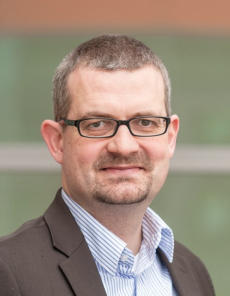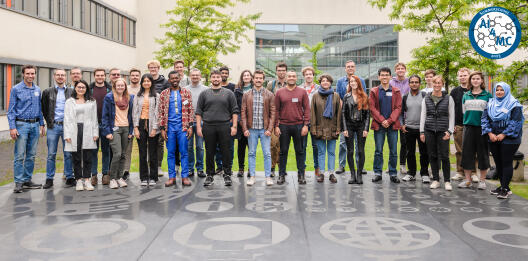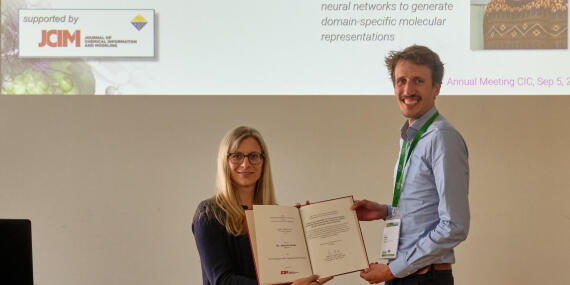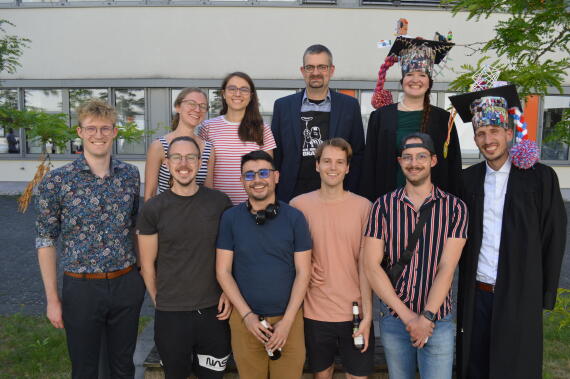
Prof. Dr. Oliver Koch
Heisenberg-Professor of Computational Drug Discovery
Institute of Pharmaceutical and Medicinal Chemistry
Corrensstr. 48, 48149 Münster
Tel.: +49 (0)251 - 83-33443
Fax: +49 (0)251 - 83-32144
E-Mail: Oliver.Koch@uni-muenster.de
https://orcid.org/0000-0001-9228-217X
Keywords: medicinal chemistry, computational molecular design, cheminformatics, structure-based design, fragment-based design, artifical intelligence, data-driven decision making, design-synthesize-test cycle
Two fully funded doctoral positions available: Biochemistry and Synthesis!
In order to expand the experimental focus of my group, I am looking for two new doctoral students: one with a focus on the synthesis of new antituberculosis drugs, the other in the field of biochemical and crystallographic characterization of new anti-infectives. Both projects are embedded in an AI-based drug design cycle.
Due to teaching duties, very good German language skills are required.
The application deadline is August 15, 2025!
Further details can be found in the official announcement:
Biochemistry: Announcement
Synthesis: Announcement

Artificial intelligence and data science methods are currently changing not only industrial drug development, but also academic research. The well-known Design-Make-Test-Analyse cycle with experimentally validation of newly designed compounds is extended by an AI and data-driven computationally optimisation cycle (see figure). Here, compounds are optimized in several rounds of computational design and evaluation. Generative chemistry approaches are combined with computational molecular design and property predictions like ADME-Tox to perform a multi-objective optimisation which not only optimises the target-affinity, but also all other needed drug properties. This is expected to speed up the drug design and development process and deliver more safety drugs. I established this AI- and Data-centered Design-Make-Test-Analyse (AI-DMTA) cycle for selected projects by combining data-driven development, artificial intelligence-based methods, computational molecular design and molecular dynamics simulations with the synthesis of small molecule compounds, the development and application of biochemical and biophysical assays, and x-ray crystallography.

My research interest lies in the development and application of computational methods in rational drug design with focus on structure-based design and ‘big data’ driven decisions in order to develop bioactive molecules and to understand selectivity, promiscuity and polypharmacology of protein-ligand interactions. This work is generally aimed at applying and improving the performance of computational methods in delivering novel and safe small molecule therapeutics. In an interdisciplinary way, the in-silico work is combined with biochemical evaluation and preparative organic synthesis for the identification and optimisation of promising molecules and the evaluation of newly developed methods (see figure). My development research projects are focused on (new) data-oriented methods and the application of artificial intelligence for the improvement of virtual screening approaches, and the analysis of protein-ligand interactions and the underlying framework of protein binding sites. The increase in the number of protein structures and the tremendous amounts of bioactivity data still need new tools and approaches or a better understanding of existing tools for efficient data mining and knowledge discovery. The aim is to use this knowledge, the available ‘big’ bioactivity data and protein structures for computational molecular design and identification of new bioactive compounds. A special focus is on the identification of promiscuous fragments that can generally be used for fragment-based design approaches.
On the following pages you can find more information about the group members and our research and scientific output.



















